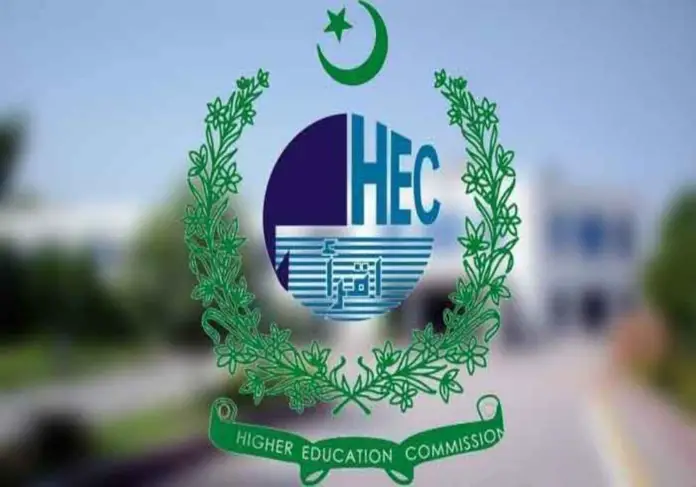Chairman Punjab Higher Education Commission Dr. Shahid Munir on Friday emphasised that as Pakistan is the world’s fifth most populous country, with more than 60 % of its population under 30, a skilled and employable youth was the only way to meet those challenges.
Addressing on the second day of the 3-day Vice Chancellor conference on “ Paradigm Shift in Higher Education-Hackathon planning for future” jointly organised by Kohsar University Murree and the University of Education Lahore in collaboration with Punjab Higher Education Commission he said that universities needed to offer quality education relevant to market needs, focus on skill development among youth, promote technology-integrated education, the development and use of artificial intelligence and robotics in Pakistan, cultivate entrepreneurial minds, strengthen international collaborations, personalize education, teach data science, and encourage border-free and globalized education for students,
Mapping out the current global challenges, including the staggering unemployment rate among the youth; scarcity in production of food grains and depleting natural resources due to international conflicts and wars; hazardous effects of climate change; rapid population growth rate; uneven distribution of wealth; and lack of a skilled workforce, Chairman Punjab Higher Education Commission, Prof. Dr. Shahid Munir, emphasized equipping youth with market-oriented employability skills.
He said that economies are rapidly changing due to technological advances that necessitate new competencies for an intangible knowledge economy. He suggested universities must monitor eleven megatrends over the next half century to shape a better world for future generations he added.
He said material revolution, water scarcity, food security, a borderless digital world, living with autonomous robots, reconfiguring human purpose and potential, advances in health and nutrition, new energy production solutions, automatic electric vehicles, climate change, green technology, and deference technologies are among these trends.
Speaking on the occasion host Prof. Dr. Syed Habib Bokhari said Every year, millions of people in Pakistan get displaced or affected due to increasing and intensified natural disasters in the form of floods, droughts, forest fires extreme weather. Hundreds if not thousands of them lose their lives, livelihoods, and other valuable properties and precious holdings due to such natural disasters.
People living in fragile or poorly developed areas in terms of dysfunctional town planning due to increasing urbanization trends are most vulnerable. He said moreover, changes in lifestyles and rapidly growing population in current decades have brought unprecedented pressures not only on the existing land resources but on the biodiversity because of unplanned expansion and associated extensive concrete infrastructures.
Moreover, he said a significant proportion of rural communities are mostly involved in climate-sensitive livelihood, primarily farming, and do not own alternative sources of income in most cases. Therefore, this situation also exacerbates their exposure and losses from natural disasters he added.
Therefore, adequate and timely adaptation measures are needed to minimize the negative impacts of such disastrous events and whether are we ready to do better climate disaster planning that is a big question.
Dr. Syed Habib Bokhari said Pakistan has diverse ecological areas due to its extreme variations in altitude and latitude and these ecological regions can be well exploited for Food Security, harvesting energy through environment-friendly means, conservation, and optimal use of water resources. In this regard, he said the diverse regions such as deserts and mountainous regions can not only be brought under controlled cultivation through precision agriculture but to protect the biodiversity & environment by making communities their stakeholders through alternate livelihood and necessary training & facilitation by the stakeholders including universities.
Dr. Syed Habib Bokhari said in a nutshell, without a strong research base and prior preparedness, a rapid and effective response to such threats cannot be initiated and hence such climate-driven emergencies will be a hard nut to crack.
Therefore, the importance of empowering communities and imparting necessary training to adopt precision agriculture integrated approaches can-not be overemphasized and universities working closely with each other will be intrinsic to maintaining a high level of training to prepare a skilled workforce to meet not only the local challenges but becoming globally relevant institutes of higher learning in the light of SGDs.
SDGs are very complex and multi-sectoral by nature & very limited literature (almost non-existent) is available on the role of stakeholders he concluded.
Ends/








Comments are closed.